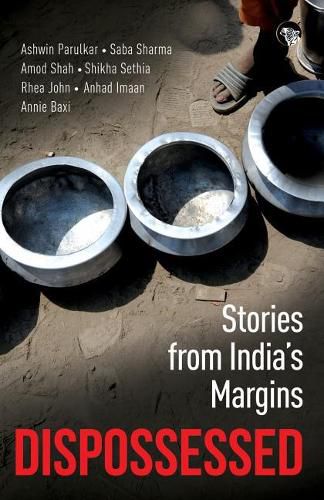Readings Newsletter
Become a Readings Member to make your shopping experience even easier.
Sign in or sign up for free!
You’re not far away from qualifying for FREE standard shipping within Australia
You’ve qualified for FREE standard shipping within Australia
The cart is loading…






This title is printed to order. This book may have been self-published. If so, we cannot guarantee the quality of the content. In the main most books will have gone through the editing process however some may not. We therefore suggest that you be aware of this before ordering this book. If in doubt check either the author or publisher’s details as we are unable to accept any returns unless they are faulty. Please contact us if you have any questions.
In 2005, starving members of the Bhuiya clan in one of Bihar’s poorest villages dug up a long-buried dead goat, cooked and ate it. Sixteen people died within days, twelve of them children.
Bengali-speaking Muslims who had moved to Rajasthan from West Bengal in the 1970s and ‘80s were summarily declared Bangladeshi terrorists in the aftermath of the 2008 Jaipur bomb blasts. They remain stateless in their own country.
Landless Lodhas, members of an erstwhile 'Criminal Tribe’ in Bihar, grapple even today with centuries of shame and dispossession.
These stories–along with those of women with mental and physical disabilities in rural areas, homeless men living in Yamuna Pushta, in New Delhi, and patients in a leprosy colony in Orissa–reveal both stigma and support, harsh lives, an uncaring, corrupt state and moments of resilience.
Drawn from interviews and conversations as part of a study on destitution by the Centre for Equity Studies, Dispossessed: Stories from India’s Margins takes a wide-ranging view of what it meansto be destitute, displaced and marginalizedin contemporary India. Equally importantly, through these personal accounts of their research, the authors explore their own privilegesin comparison.
Written with sensitivity and care, this is an important book that perceptively questions India’s engagement with the people at its marginsand should be essential reading for all.
$9.00 standard shipping within Australia
FREE standard shipping within Australia for orders over $100.00
Express & International shipping calculated at checkout
This title is printed to order. This book may have been self-published. If so, we cannot guarantee the quality of the content. In the main most books will have gone through the editing process however some may not. We therefore suggest that you be aware of this before ordering this book. If in doubt check either the author or publisher’s details as we are unable to accept any returns unless they are faulty. Please contact us if you have any questions.
In 2005, starving members of the Bhuiya clan in one of Bihar’s poorest villages dug up a long-buried dead goat, cooked and ate it. Sixteen people died within days, twelve of them children.
Bengali-speaking Muslims who had moved to Rajasthan from West Bengal in the 1970s and ‘80s were summarily declared Bangladeshi terrorists in the aftermath of the 2008 Jaipur bomb blasts. They remain stateless in their own country.
Landless Lodhas, members of an erstwhile 'Criminal Tribe’ in Bihar, grapple even today with centuries of shame and dispossession.
These stories–along with those of women with mental and physical disabilities in rural areas, homeless men living in Yamuna Pushta, in New Delhi, and patients in a leprosy colony in Orissa–reveal both stigma and support, harsh lives, an uncaring, corrupt state and moments of resilience.
Drawn from interviews and conversations as part of a study on destitution by the Centre for Equity Studies, Dispossessed: Stories from India’s Margins takes a wide-ranging view of what it meansto be destitute, displaced and marginalizedin contemporary India. Equally importantly, through these personal accounts of their research, the authors explore their own privilegesin comparison.
Written with sensitivity and care, this is an important book that perceptively questions India’s engagement with the people at its marginsand should be essential reading for all.